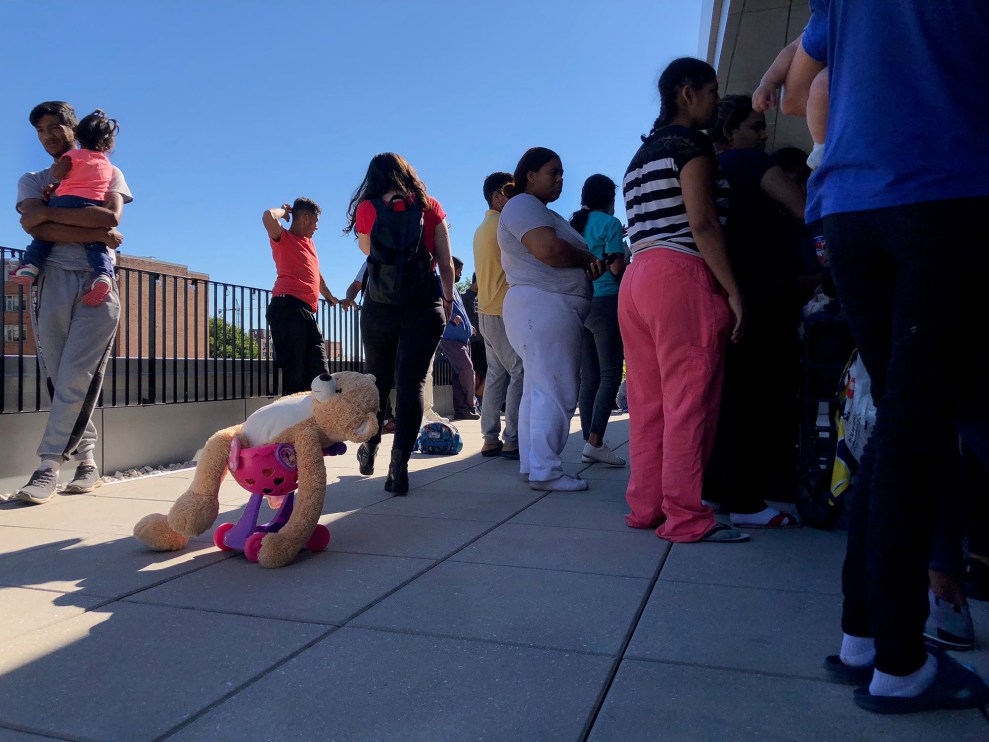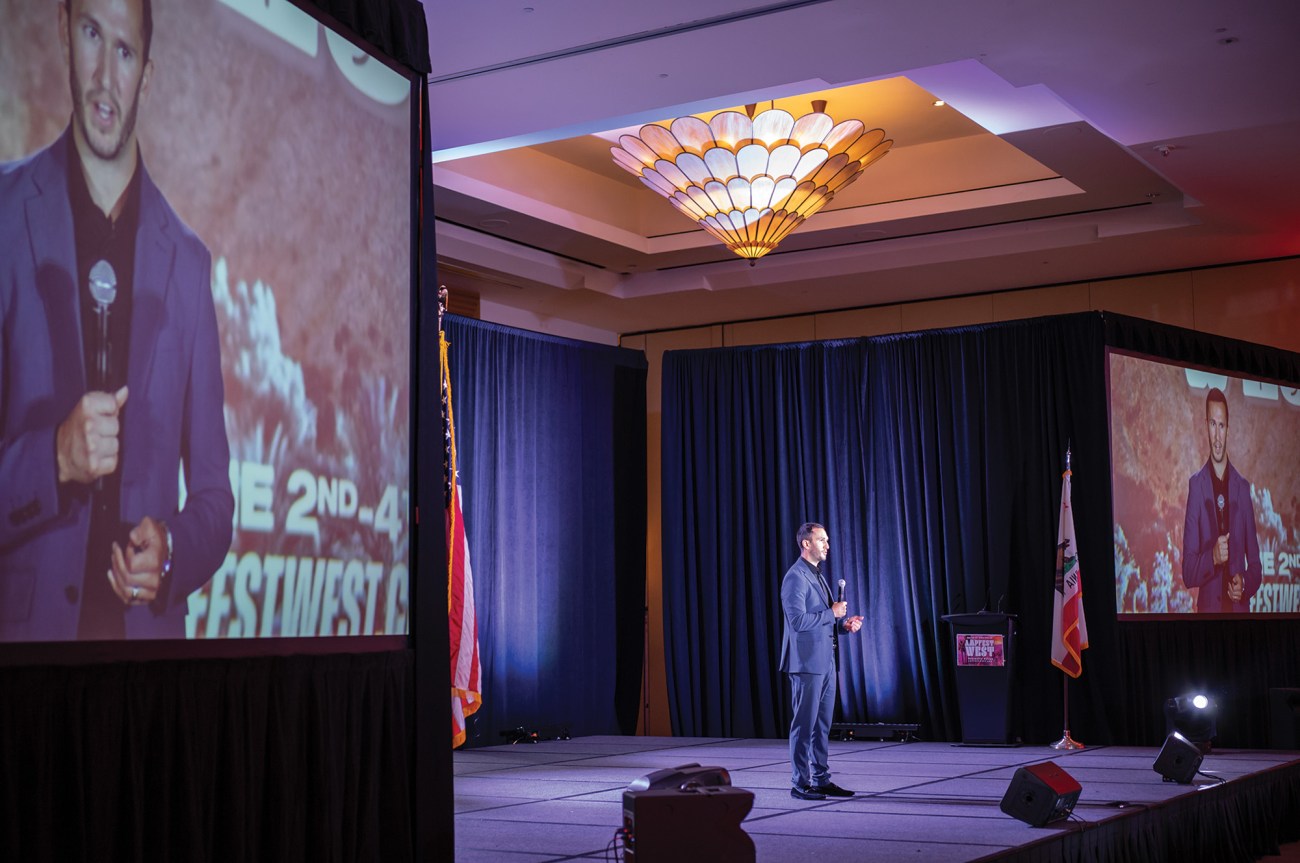Early Saturday morning, the room on the fourth floor of the Washington, DC, church is full. It’s not yet 7 a.m. and already about sixty migrants, mostly men and a handful of families with children, some women breastfeeding, sit around nine round tables. Their scant belongings—keepsakes of the homes they had left behind and tokens of solidarity from strangers they encountered along the way—are preserved inside transparent Ziplocs and white trash bags. After a 1,700-mile, 40-hour journey from Texas, two of the more than 150 buses transporting migrants that Texas Gov. Greg Abbott has sent to Washington, DC, had arrived at Union Station at dawn. One woman approaches me to ask where she can take a shower, telling me she really needs to clean up. Another wonders if she can have a new pair of shoes because the cheap rubber sandals on her feet are falling apart. Some people need diapers and ointment for their babies; others ask around for some medicine that could relieve a headache.
David Swanson, a 60-year-old compliance manager with the Human Rights Campaign finance department volunteers at the church every other weekend. (Mother Jones is not disclosing the location of the church or the migrants’ full names to protect their identities.) Since the church started receiving migrants in late May, over a month after they began arriving in the city, he has met people from all over the world—Venezuela, Guatemala, Honduras, Haiti, and even Afghanistan. During one of his shifts, a volunteer who happened to be a pediatrician noticed a woman who had surgical staples all over her chest. Swanson recalls that she had been shot many times, then hospitalized, but left her home country before she could get them removed. Another man had told him that he felt “a little bit like a prisoner” when he saw his final destination—Nashville, Tennessee—fly by the window as his bus raced towards the east coast without making a stop.
This Saturday in August, Swanson is cooking breakfast for a group he had anticipated would number about 23 people. The gathering had more than doubled, and it turned out to be the biggest group the church had welcomed in a while. Dressed in an apron, Swanson started at 5 a.m. and prepared 130 eggs and eight rolls of pork sausage to be served with slices of melon, mandarin oranges, white bread, coffee, and apple juice. Still, he worries there might not be enough food for everyone. “Luckily we had a lot of leftover eggs from last week,” he tells me. Nearby, a young man thanks a volunteer, saying he hadn’t had a proper meal in several days. A mother breastfeeding a cheerful eight-month-old boy tells me she is happy to drink coffee for the first time in more than a week. Like so many people in the room, she and her husband hope to leave soon for New York.
“We mostly stay out of the way and let them do their work,” Swanson says of the volunteers with the Migrant Solidarity Mutual Aid Network, a coalition of about 20 grassroots groups from the DMV area and countless individuals who have mobilized to receive the buses at Union Station. “They work like a machine,” he says, coordinating with churches and other faith-based organizations to provide assistance and orientation to the migrants.
A group of about 60 migrants arrived at a Washington, DC, church on a Saturday in August.
Copyright
© Mother Jones



